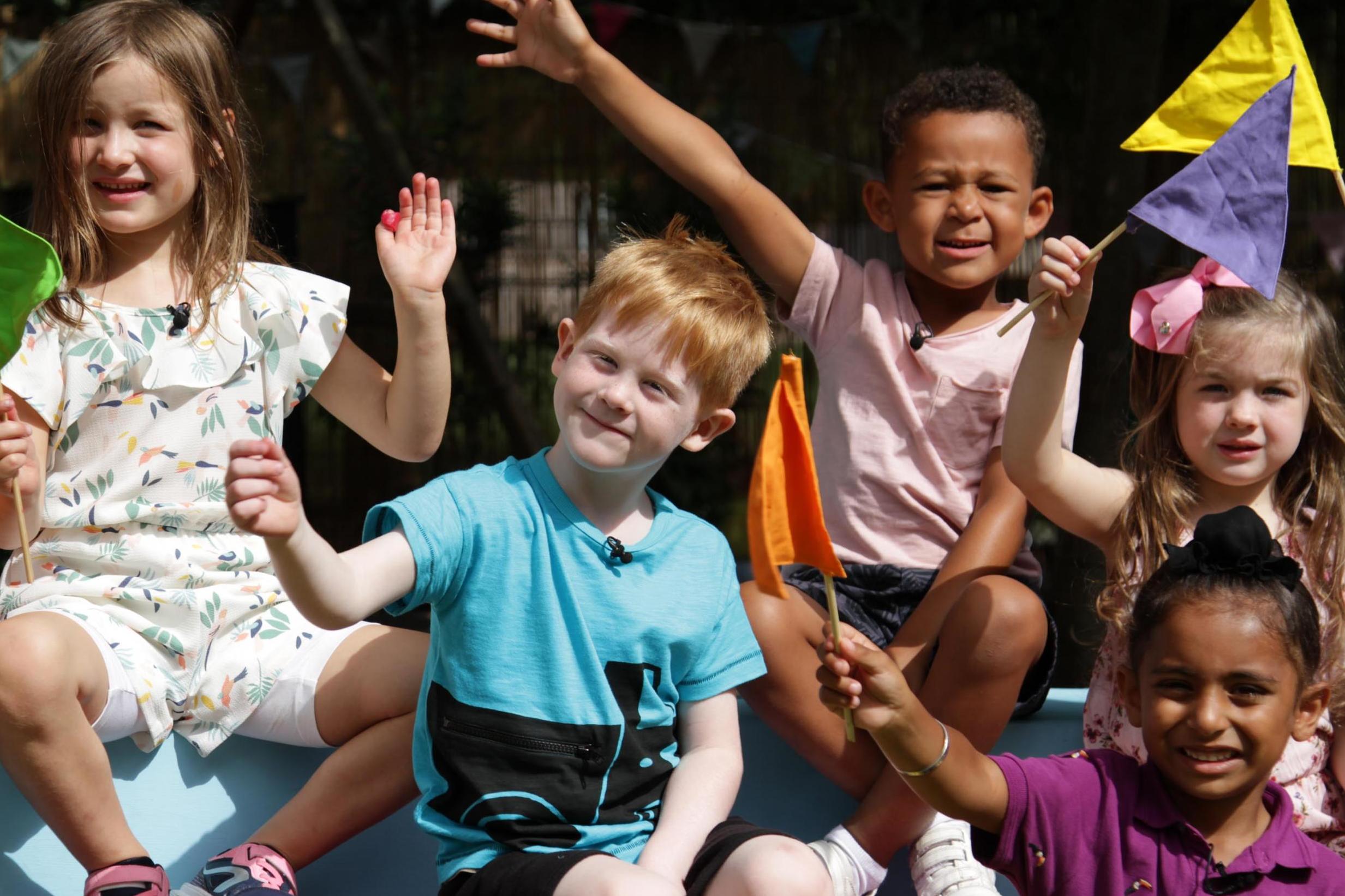The Secret Life of 5 Year Olds review: Judging by this wee bunch, the future is a kind one
Britain in 2049 will be quite a harmonious, kindly, and creative sort of country when these kids are in charge

Your support helps us to tell the story
From reproductive rights to climate change to Big Tech, The Independent is on the ground when the story is developing. Whether it's investigating the financials of Elon Musk's pro-Trump PAC or producing our latest documentary, 'The A Word', which shines a light on the American women fighting for reproductive rights, we know how important it is to parse out the facts from the messaging.
At such a critical moment in US history, we need reporters on the ground. Your donation allows us to keep sending journalists to speak to both sides of the story.
The Independent is trusted by Americans across the entire political spectrum. And unlike many other quality news outlets, we choose not to lock Americans out of our reporting and analysis with paywalls. We believe quality journalism should be available to everyone, paid for by those who can afford it.
Your support makes all the difference.Channel 4’s The Secret Life of Five Year Olds purports to possess a sort of semi-scientific remit. There are two child psychologists parked in a room somewhere, watching the kids on CCTV as they undertake various “challenges”, guided by two unobtrusive teachers. Some say it’s a bit exploitative, but everyone seems to enjoying themselves. A bit like journalism, I suppose.
Anyhow, the kids are from all over the country, and from a variety of backgrounds, and, while you won’t want to exaggerate things, it does make you reflect about the future of the country. If anyone still cares, that is.
What stuck in my mind among the experiments is the monstrous power of celebrity, or “role models” as they’re described, and how they can obtain a grip on very young minds. The experimental challenge this episode is to ask each of the ten or so children to get up on stage and give a presentation about their own “hero”.
One of the children – and God only knows what brain-washing techniques she’s been coerced by – volunteers “Jeremy Corbyn”. I mean, I’ve heard of Momentum Youth and Students, but this is obscene. Merryn, dressed more than a little bizarrely in a red and white candy-striped tie, as if she is Shadow Secretary of State for Haribos, then proceeds to justify this precocious choice: “He gives everything back to people and she shouts at Theresa May like this; ‘Theresa May, it’s not your business’.” She has a bright future as a parliamentary sketch writer, if nothing else. As the in-house psychologist puts, it we are “hard-wired to imitate strong role models” at the earliest opportunity. When we’re grown-ups, we call it leadership.
Almost as disquieting is Daya, who turns up in the Portuguese national football strip and tells his credulous audience that his hero’s Ronaldo (fair enough). When his teacher enquires as to why, he is commendably frank: “I had a dream about him that he is my dad, and he actually is my dad. He has a six pack.” Later on, we actually get to meet Daya’s dad. He is a pharmacist from West Yorkshire, and doesn’t play for Juventus, captain Portugal’s national side or, by the looks of him, possess a six pack.
Daya’s mum and dad have, though, trained the boy to be kind, and it would have been nice to find out a bit more about how they achieved this. Daya is uncannily effective at pushing back, literally, little Vinny’s attempts to convince everyone that he, Daya, is a girl, and then placating Vinny when he is put in his place. Daya, you see, is Sikh and has a top-knot.
In the end, Daya, in alliance with the assertive Maxwell, makes friends with Vinnie in a series of deft diplomatic moves – a mini-triumph. His ambition is to be a pharmacist (rather than play professional football at an international level) but, no disrespect to the family business, he’d probably be quite good at negotiating whatever the successor to Brexit turns out to be in a few years’ time.
The show is sometimes heart-breaking, without even trying to be particularly saccharine. Tilly-Marie is an outstandingly brave sort of kid. Like all the others, she responds best to encouragement based on how hard she is trying, rather than how clever she is. Thus, in another “small” victory, she finds herself conquering the monkey bars, with the support of her friends. That’s an important empirical finding.
Then there is little Samuel. His dad died when he was four, but that doesn’t stop him from making imaginary phone calls to him, in heaven. He’s another sweet-natured kid who’s also the brightest, working out before any of the others how to start up the giant dancing robot. He has also developed his own sharp dress sense, involving colour-coordinated combinations of bow ties and trilbies, like a used car salesman of the future. Samuel’s hero is his dad. And I think Samuel is my hero, and I suspect he will do well in life.

Watch Apple TV+ free for 7 days
New subscribers only. £8.99/mo. after free trial. Plan auto-renews until cancelled

Watch Apple TV+ free for 7 days
New subscribers only. £8.99/mo. after free trial. Plan auto-renews until cancelled
If this wee bunch are anything to go by, and all goes well, Britain in around 2049 will be quite a harmonious, kindly, creative sort of country for us old folks to live in, and we have nothing to fear from those born in this decade. Apart from the miniature Corbynista, of course. She’s trouble.
Join our commenting forum
Join thought-provoking conversations, follow other Independent readers and see their replies
Comments